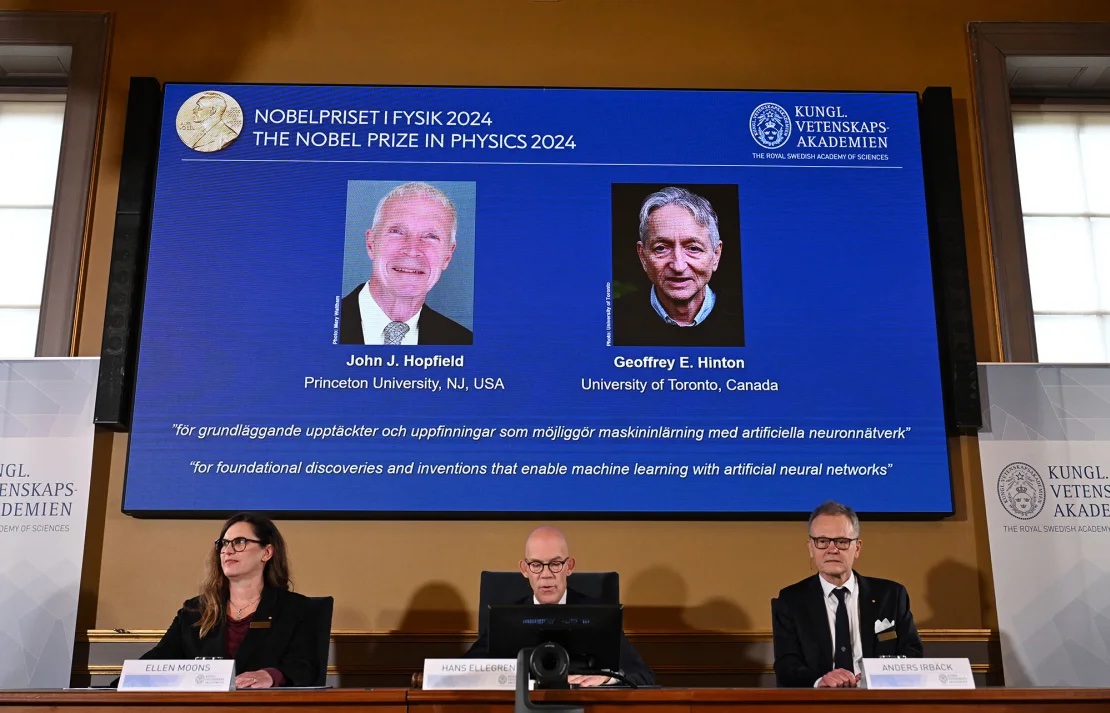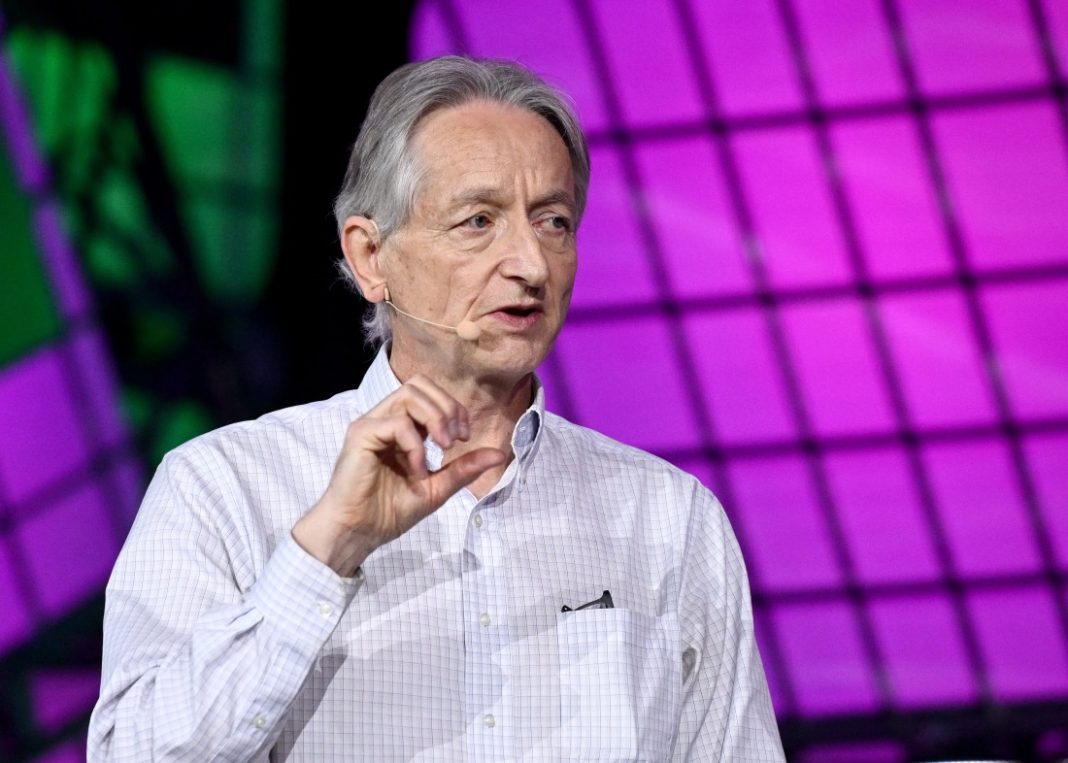LONDON, UK — Geoffrey Hinton, a pioneering computer scientist often referred to as the “godfather of AI,” issued a stark warning about the dangers of artificial intelligence just moments after being awarded the Nobel Prize in Physics last Tuesday for his groundbreaking work on machine learning.
“It will be comparable with the Industrial Revolution,” Hinton said during a press conference following the announcement.
“But instead of exceeding people in physical strength, it’s going to exceed people in intellectual ability. We have no experience of what it’s like to have things smarter than us.”
Hinton, who left his position at Google in 2023 to raise concerns about the future of AI, shared the prize with John Hopfield of Princeton University for their work on artificial neural networks, the systems that have become central to machine learning technologies.
The duo’s research has transformed fields ranging from healthcare to robotics, but Hinton remains deeply concerned about the broader implications of AI.
While Hinton acknowledges that artificial intelligence has the potential to significantly benefit society by improving productivity in areas like healthcare, he stressed the risks that come with its rapid development.
“There are a number of possible bad consequences, particularly the threat of these things getting out of control,” he said.
Hinton’s fears echo those of other leading scientists who have received Nobel recognition for their research, only to later express concern about how their innovations could be misused.

Historical Parallels: Nobel Laureates’ Cautions
Hinton’s warnings align with a tradition of Nobel laureates raising the alarm about the unforeseen consequences of their own discoveries.
In 1935, chemists Irene Joliot-Curie and Frédéric Joliot, who were awarded the Nobel Prize for creating the first artificially produced radioactive atoms, warned of the dangers posed by nuclear energy.
While their work advanced medical treatments, it also laid the foundation for the atomic bomb.
During his Nobel lecture, Joliot cautioned that future scientists could “bring about transmutations of an explosive type” and potentially “unloose such a cataclysm.”
Similarly, in 1945, Sir Alexander Fleming, the discoverer of penicillin and a Nobel laureate in medicine, foreshadowed the modern crisis of antibiotic resistance.
He warned that improper use of antibiotics could lead to resistant strains of bacteria, a prediction that resonates today as antimicrobial resistance has become one of the greatest threats to public health worldwide.
Paul Berg, who won the Nobel Prize in 1980 for his work on recombinant DNA, also highlighted the risks posed by genetic engineering.
Though he called for optimism about the scientific breakthroughs that could arise from his research, Berg acknowledged the potential for biological warfare and genetic manipulation.
AI: A New Frontier With Familiar Risks
Hinton’s concerns about AI are rooted in similar ethical dilemmas.
Though the technology holds promise in revolutionizing industries from healthcare to education, he is particularly worried about the creation of systems that surpass human intelligence and potentially operate beyond human control.
“I am worried that the overall consequence of this might be systems more intelligent than us that eventually take control,” Hinton said.
His warnings come amid growing global discussions about the regulation of AI, with policymakers grappling with how to manage the rapid growth of the technology while minimizing its potential harm.
Hinton’s departure from Google last year was widely seen as a significant moment in the debate over AI safety.
At the time, he explained that his decision was driven by a desire to speak openly about the risks posed by the very technology he helped create.
The global AI race has raised fears about military applications, job displacement, and the potential for AI systems to make decisions that affect millions without human oversight.
Hinton emphasised that scientists have a duty to engage in public discussions about the risks of their work, just as past Nobel laureates have done with discoveries that reshaped the world.
“We’ve seen that dual-use capability with other transformative technologies like nuclear power – and now with AI,” said Jennifer Doudna, the 2020 Nobel laureate in chemistry for her work on gene editing, in an interview with CNN this week.
Hinton’s warning, alongside those of his fellow laureates, serves as a call to action for the scientific community and global leaders to ensure that safeguards are in place as the world moves deeper into the era of artificial intelligence.







